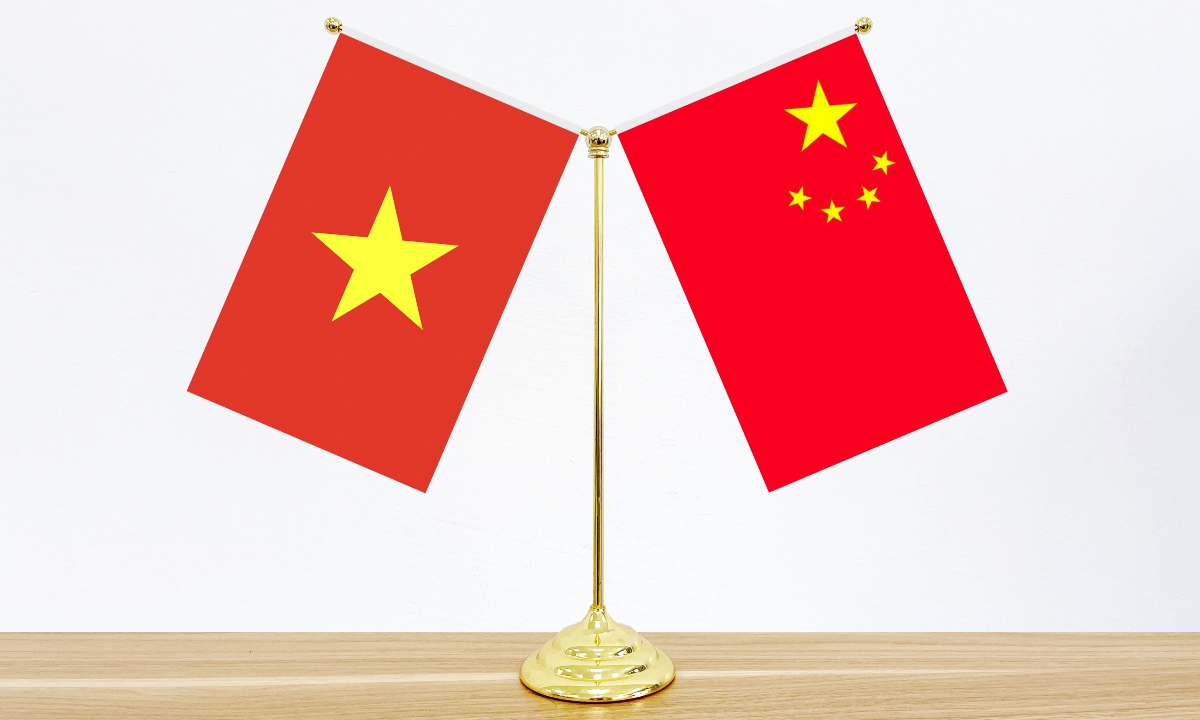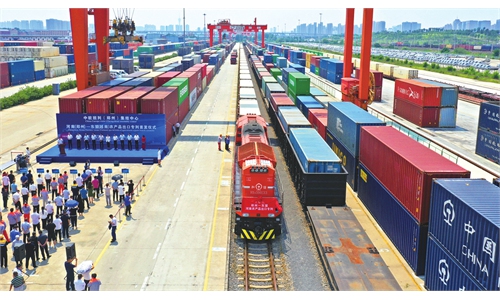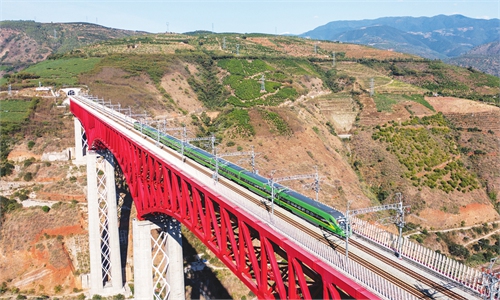China, Vietnam deepen trade, investment cooperation, help strengthen regional economic integration, supply chain stability

China Vietnam Photo: VCG
China will deepen trade and investment cooperation with Vietnam, Minister of Commerce Wang Wentao said on Saturday during a meeting with Vietnamese Prime Minister Pham Minh Chinh in Ho Chi Minh City.
The meeting yielded results in many fields and the two sides agreed to ramp up bilateral economic ties while help deepen regional economic integration together.
The two sides exchanged views on subjects such as trade settlement in local currencies and railway connectivity, and other forms of cooperation to boost bilateral trade and investment, according to a notice issued on the website of the Ministry of Commerce (MOFCOM) on Saturday.
Pham Minh Chinh expressed Vietnam's willingness to explore bilateral trade settlement in local currencies, enhance rail connectivity and attract more Chinese companies to invest in Vietnam. Vietnam also aspires to expand its shipment of high-quality agricultural goods to China, while strengthen cooperation in the e-commerce sector.
Wang Wentao said that China is ready to deepen and expand bilateral trade and investment cooperation, support Vietnam to develop its digital economy, green development and cross-border e-commerce.
Their meeting covered a wide range of issues, including currency exchange, infrastructure cooperation and investment, which shows both countries have the desire to nurture closer economic ties, which will bring new vitality into growing each other's economies and strengthen regional integration and supply chain cooperation, Zhou Shixin, director of the Institute for Foreign Policy Studies at the Shanghai Institute for International Studies, told the Global Times on Sunday.
The discussion of trade settlement in their own currencies underscores mutual confidence in both countries' economic prospects, Zhou said. This will help facilitate trade growth and economic integration.
China is Vietnam's largest trading partner, with bilateral trade hitting $234.9 billion in 2022. Vietnam has become China's biggest trading partner among the 10 ASEAN members, the Xinhua News Agency reported.
With the expansion of bilateral trade, settlements in local currencies are likely to gain pace, Zhou said.
The Vietnamese prime minister stressed that Vietnam will work to promote railway interconnectivity with China and enhance the level of openness and cooperation at its border ports.
Vietnamese media reported that Chinese companies have expressed intentions to invest in major infrastructure projects in Vietnam, including a high-speed North-South railway that aims to connect the capital city of Hanoi with the southern commercial hub of Ho Chi Minh City.
For Vietnam, the project will be pivotal for national development. From an economic perspective, it's highly possible for Chinese companies to participate in the construction of a high-speed railway linking Vietnam's north and south, given China's know-how and experience in the field, Zhou said.
The growing areas of cooperation will benefit regional integration as they can enhance regional economic and trade exchange, and facilitate the integration of regional supply chain, Wang Peng, an associate researcher at the Beijing Academy of Social Sciences, told the Global Times on Sunday.
The developments underscore a strong symbiotic bilateral relationship, debunking claims by foreign media of a manufacturing rivalry, experts said. There exists a large room for bilateral economic and trade investment cooperation, Wang Peng said.
As China's manufacturing sector undergoes transformation and upgrading, some companies are seeking to establish production outlets in countries with lower labor cost, making Vietnam an attractive destination for investment, Wang Peng said.
But the process does not mean an offshoring of China's manufacturing industry, but rather win-win cooperation in the context of promoting regional economic integration and leveraging each other's strengths, the Chinese expert noted.
During recent years, the two countries have ramped up cooperation in high technologies, green development and e-commerce. And, Chinese companies' high-tech investments have helped produced tax revenue streams and many local jobs, Zhou said.


